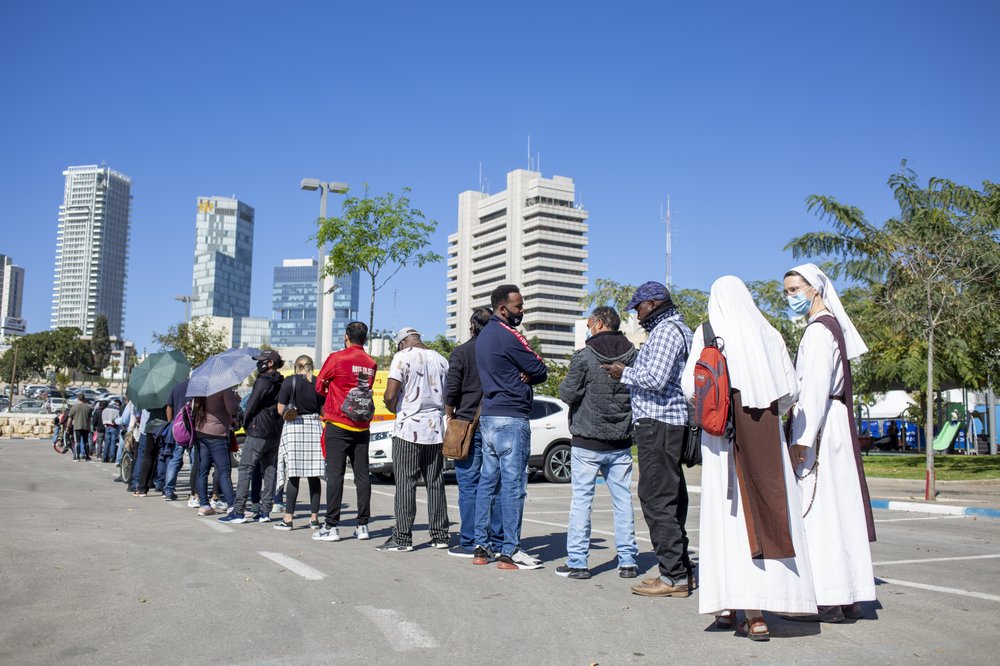
TEL AVIV, Israel (AP) — Dozens of asylum seekers and foreign workers in the Israeli city of Tel Aviv lined up to receive their first dose of the COVID-19 vaccine on Tuesday as part of an initiative to inoculate the city’s foreign nationals.
Tel Aviv city hall and the Sourasky Medical Center started administering vaccines free of charge to the city’s foreign nationals, many of whom are undocumented asylum seekers.
On its first day of operation, the vaccination center in southern Tel Aviv, which is home to a large migrant community, dispensed doses to dozens of foreign nationals who lined up outside the building. Posters provided information in English, Tigrinya, Russian and Arabic. Recipients included foreign workers from the Philippines, Moldova, and Nigeria, as well as Sudanese and Eritrean asylum seekers.
Garipelly Srinivas Goud, an Indian national who has worked in Israel for eight years, said that some foreign workers in Israel don’t have money or insurance to afford paying privately for the vaccine, and said the vaccine drive was a “very good decision. I am very happy.”
Eytan Schwartz, a Tel Aviv municipality spokesman, said it was the government’s responsibility “to vaccinate everybody within the nation’s borders” and that it would take the next step and start “to vaccinate the illegal or undocumented asylum seekers as well.”
Israel has pushed to inoculate most of its population since late December. Last week it made vaccines available to all citizens over the age of 16.
It has thus far delivered over 3.5 million first doses of the Pfizer vaccine and at least 2.1 million second doses.
The vaccination campaign has won praise internationally for its quick pace, but also drawn criticism for not including Palestinians living in the occupied West Bank and the blockaded Gaza Strip. The World Health Organization has raised concerns about the inequity, and rights groups say Israel has the obligation as an occupying power to vaccinate Palestinians.
Israel denies having such a responsibility and says its priority is its own citizens. Nonetheless, it last week started providing the Palestinian Authority in the West Bank with thousands of vaccines for health care workers. The Palestinians also have received about 10,000 doses of the Russian Sputnik vaccine, and expect to receive additional doses this month from a WHO program for poorer nations. Still, the Palestinians will only be able to vaccinate a small percentage of their population.
On Sunday, Israel started easing some of its lockdown restrictions that had been in place for over a month in an effort to clamp down on the spread of the coronavirus.
Infection rates in Israel remain high. The country has recorded over 700,000 cases of the coronavirus since the start of the pandemic last year. At least 5,192 people have died of the disease, according to Health Ministry figures published on Tuesday.




